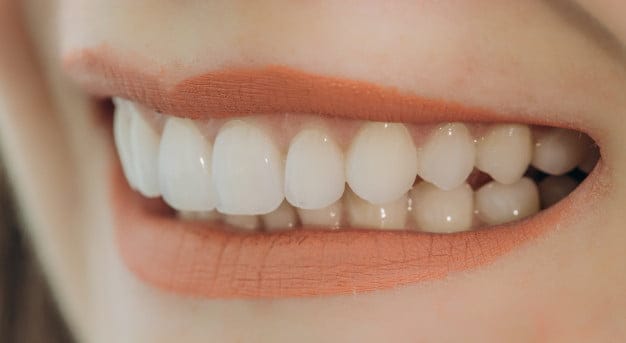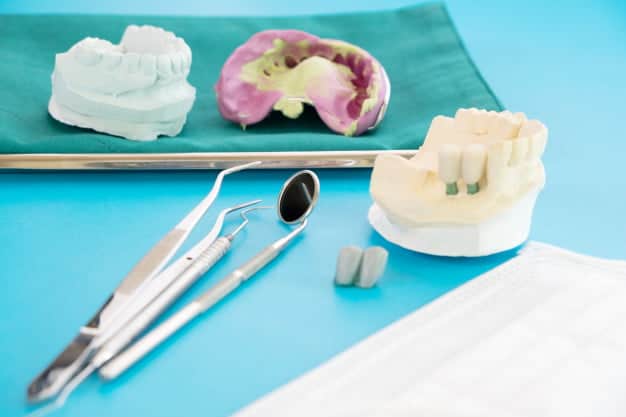The dental crown is a cosmetic dentistry procedure that consists of installing a cover or cap to a tooth, to improve its appearance in terms of shape and alignment or because it’s partially damaged. They can be made of porcelain or dental ceramic, metal alloys or resin.
Types of dental crowns
As we have already mentioned, there are several types of dental crowns, below we present in more detail the five types of crowns available on the market
Metal and porcelain crown
It’s made of metal covered with fused porcelain, it’s very strong since thanks to the metal it resists chewing power quite well, and it has a natural appearance.
Full porcelain or empress crown
It’s a 100% porcelain and metal-free crown; it’s generally used for anterior teeth, although it can also be used on molars in case there are no problems associated with bruxism, if it’s not very strong, the use of occlusal guard is suggested. This crown is quite strong, durable and offers a natural look.

Total metal crown
It’s a complete metal restoration, it’s specifically used in cases of patients suffering from bruxism, since porcelain in strong cases can fracture, due to the force of teeth grinding.
Implant crown
This type of crown is used when there is total loss of the tooth, an implant is previously placed, it should wait about 3–7 months, it’s verified by radiography that everything goes well with the implant, dental impressions are made to make the crown to the extent of the patient, finally the crown is screwed to the implant, in this case it isn’t cemented like the previous ones.
Zirconia crown
The use of these types of crowns is relatively new; it’s a material for fixed dental prostheses that gives a smile a quite aesthetic and natural appearance. They are not 100% Zircona, it’s used only for the internal part and then it’s covered with ceramic or dental porcelain, this combination provides a really extraordinary hardness and firmness.
Advantages of dental crowns
Although each of the dental crowns described above has its own benefits, we will present the general advantages of this dental procedure:
- Returns the original appearance of the tooth
- Strengthens the tooth where it is installed, providing more support and protecting the compromised area
- Radically improves the aesthetics of teeth
- Improves the functional part of the denture in general
- Being fixed offers greater comfort, unlike removable dental prostheses
And after the dental crown is installed
It’s of utmost importance that you have knowledge that after the installation of a dental crown, there may be an increase in dental sensitivity, for about 30-45 days, however it can be alleviated with some products and care recommended by the dental specialist.
Furthermore, on the teeth to which this procedure is applied, root canal treatments and / or orthodontic treatments can also be performed without inconvenience.

